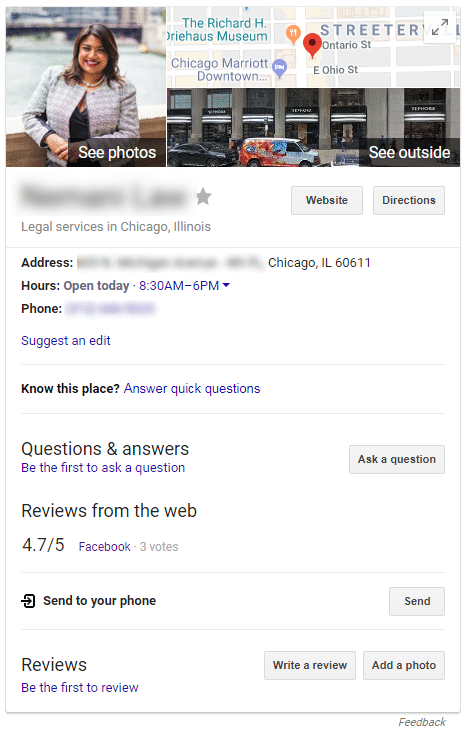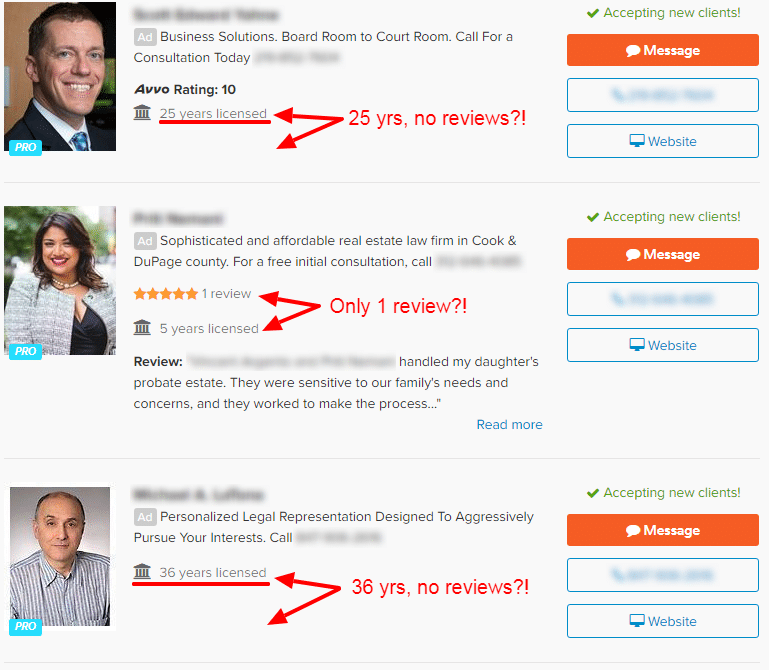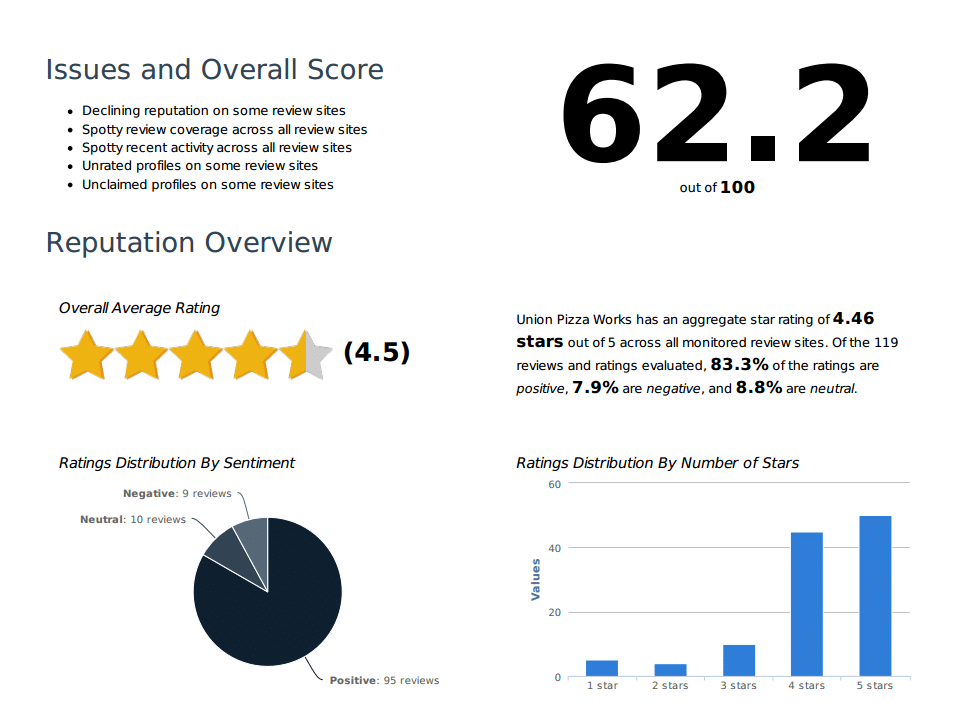It's the last thing on their mind.
Business owners don't see online review management as a priority. At best, it's viewed by many organizations as an extra, a nice to have. At worst, it's seen as a money pit. A black hole that sucks up their precious marketing budget.
And these are the business owners who know about the difference betweenreputation management and online review management.
Business owners don't understand online reviews
Most understand the significance of online reviews. They don't understand why it's significant which is a very different thing.
That's a problem.
Here's the scenario business owners run through in their heads.
1. I have a product.
2. I need customers to buy my product or service. That means...
3. I need something that will generate sales, leads asap.
That's pretty straightforward right? It's simple, clear and easy-to-follow. Here's the problem with this three step process.
It's wrong.
Or rather, it's incomplete. The vast majority of business owners are operating with an incomplete model of the buying process. Here's an accurate picture of what business owners are dealing with.
1. Business owner has a product and service.
2. They want customers to buy their product or service.
3. They need something to generate sales, leads asap.
4. Customers search (locally) for relevant products and services.
5. Customers are introduced to their product or service.
6. Customers choose a few "potentials."
7. Customers vet potentials.
8. Customers choose a winner.
I'm generalizing a bit to keep this simple but you get the idea, right? It's a really common mistake for business owners to exclude customers from their thought process.
What do I mean?
Buyer intent can be inferred from local search queries. For example.
- Interior designer homes in NC (research phase
- Interior designer portfolios Raleigh, NC (evaluation phase)
- Interior designer estimates Raleigh, NC (purchase phase)
If client reviews are visible for each of these searches they capture more leads, sales and customers. Search engine rankings simply aren’t enough.
Why?
Customers don’t know what they’re looking at. They do understand reviews though.
It’s common for prospects to discount the local search aspect of review management. When it comes to local search the vetting process may be longer for more complex service providers (e.g. attorney, doctor, contractor). More immediate services on the other hand (e.g. “restaurants near me or dry cleaners”) may have a much shorter vetting process.
Most business owners automatically assume customers want what they're selling specifically. That a significant portion of the market will choose their product or service. If they're amazing and they give customer a reason (i.e. a strong review portfolio) that's probably true.
Until customers get to step six.
Customers aren't impressed anymore
Want to get business owner buy in? You'll need to overcome a few hurdles first. You won't be able to get buy in until you deal with these obstacles.
These obstacles are entrenched and difficult to remove. What's worse, it's pretty unlikely that you can dislodge any of their misconceptions with your pitch. You need to grab and hold their attention immediately. That's doubly difficult because business owners know the game.
They're salespeople in disguise.
Which means they're immediately skeptical of you and your pitch.
You're facing an uphill battle. Not only do you have to expose their misconceptions and educate these business owners but you have to do it in a way that gets past their skepticism.
Use your own words and you fail.
Give business owners what they need and you win. Experienced business owners are efficient at qualifying and disqualifying people. They're experts at winnowing the information they need from your words. You have a few minutes to grab their attention, if you're lucky.
A few seconds is probably more accurate.
First things first. You need to grab their attention. How do you go about doing that?
Step #1: Slap business owners in the face
Metaphorically of course.
So we're clear, I'm not recommending you physically assault business owners before making your pitch. That's a crime. Don't do that. I'm suggesting that you hit them with something else.
Information.
Business owners are in one of three states. They're (1.) ignorant of the problem (2.) in denial about the problem or (3.) running from the problem. That's it. It's one of these three options.
This is your in.
Do a little upfront research and you'll know which state your business owner is in. If they're ignorant about the power of online review management, educate them. If they're in denial, show them the consequences of their choice. If they're avoiding the problem show them that the problem is compounding.
· No listings on major/niche review sites? Show business owners the platforms they’ve ignored, the traffic they’re losing and the customers they’re not getting.
· Listings on major/niche sites but no reviews? Show them the competitors who receiving their traffic on a monthly basis. Show them who they’re losing money to. Get them to estimate how much they’re losing (conservatively).
· Reviews visible but mostly negative? Their customers can find them but their review portfolio is mostly negative. Show business owners how this hurts their conversion rate. If you have access to the data, show them how much it’s costing them.
· Reviews focused on a single channel/platform? Maybe they have positive reviews on Yelp but they’re not visible on Google. Maybe they have more negative reviews on one channel/platform than another. Show them how much traffic they’re losing to mainstream and niche review sites.
· Ignore negative reviews? Customers use client responsiveness as a gauge. Give prospects customer feedback. Help them understand that customers want to see responsiveness. A lack of responsiveness deters potential customers from using their service.
Use your words and you're toast.
Am I saying you can't speak to them? No. That's not what I mean. Here's what I'm saying. Don't approach business owners with a speech you've planned or an extravagant PowerPoint that's loaded with filler. Approach them with the one thing that gets their attention.
Step #2: Approach business owners with specific problems
Problems get a business owner's attention like nothing else. Show business owners the shortcomings of their review portfolio. Show them how their falling website traffic correlates to the recent cluster of negative reviews they’ve received. Tie their lead gen struggles to their non-existent listings and poor SERP performance.
Give them specifics they can analyze and you’ll immediately have their attention.
How?
Show them why their review listings are missing the reviews they need. Show them who they’re competing with (losing to).

Or their lack of optimization and low SERP visibility.

Show them specifics. What does this mean exactly?
That depends on your circumstances now, doesn't it? It all depends on your industry. Specifics, for the purposes of our conversation here, is anything that either validates the problem or shows business owners how to solve the problem.

Here are a few additional examples...
- Video of customers sharing (negative) thoughts on their business.
- A flood of negative reviews hitting third party sites.
- Customers praising their competitors.
- Poor SERP visibility / local pack listings (which are dominated by competitors).
- Vendors and suppliers talking about the strengths and weaknesses of their business.
- A survey assessing customers in your business owner’s target area.
- Interviews outlining your competitor’s online review strategy.
- Incomplete or poorly optimized listings (e.g. Attorneys who don’t have an Avvo listing, electricians who aren’t listed on Angie’s List or Home Advisor).
See what I mean?
This isn't about your words, it's about their words. If you take the time to do the upfront work you'll have specific details that no one else has and influence your competitors can't touch.
Here's the best part. The people you speak with are also your prospects. Offer to share the data from your findings, give them a quick win, then ask them to close themselves.
Step #3: Agitate their pain points and deliver a quick win
A business owner's attention is focused on a few specific areas.
1. Attracting leads, customers and sales.
2. Saving lots of money, decreasing expenses.
3. Increasing revenue or profit.
You already knew that though. Not really new advice. Here's the part most people get wrong. When they make their pitch, they focus on the wrong problem. Most of the time they're focused on legitimate problems. They're just not the problems business owners care about right now.
Your pitch needs to be focused on their biggest fire. The problem they care most about right now. You could, for example, show prospects how their negative reviews are (a.) repelling customers, (b.) lowering their conversion rate and/or (c.) wasting their marketing dollars.
Next, determine how you can give them a few quick wins based on the review problems they’re facing now.
- Can you get a significant amount of their customers to write them amazing reviews?
- Can you teach them how to turn reviews in to revenue?
- Do you know how to decrease negative reviews by 30 percent?
- Can you turn their negative reviews into positive reviews and stop the financial bleeding?
It’s important to remember that quick wins aren’t the ultimate goal here. Review management and marketing is accumulative. A consistent approach dramatically outperforms “quick wins.”
Review volume and frequency are what customers look for. Slow and steady wins the race. The more consistent your clients are with their reviews, the better their conversion rate will be overall.
Step #4: Don't give business owners a proposal or quote
If you're like most online review marketers, you give business owners a comprehensive quote or proposal. ORMM needs consistency to produce results the best results. Most agencies do their very best to sign prospects up for a 12 month project but that’s a tremendous leap of faith for new clients. Sometimes that pitch works, most of the time though it fails.
You know what happens next.
You've spent a significant amount of time on your proposal or quote only to have your customers ignore your hard work. What do they do instead?
They jump right to the price.
Most of these business owners don't even understand what they're buying. They don't understand the ins and outs of online review management like you do. They're going to take your proposal and jump right to the price listed at the bottom.
Typically that's our fault.
We squander their attention. Which usually means they waste our valuable time and money.
Attracting and keeping a business owner's attention is key. Once you have their attention, make sure your proposal is up to snuff. Here's a simple formula you can follow.
Tell the story, show results.
Hit business owners with a wall of text and they tune out. Hammer them with data, jargon or numbers and you lose them.
There's an even better way to approach this really common and very depressing problem. Stop giving your clients quotes and proposals. Start disqualifying them when they ask.
How?
Ask business owners to close themselves. Let's say you've done everything right. You've educated business owners and they've seen the light. They're serious about getting help but they're asking for a proposal or a quote. Don't give it to them.
Set an appointment instead.
A date and time to go over your proposal or quote with them personally. This immediately allows you to gauge their level of commitment. If they're serious they'll set a date and time. If they're not being transparent with you, they'll stall for time.
It's a fight for control.
They know the game so they're likely to put pressure on you. These business owners may threaten you. They may decide to end the relationship or take you out of the running. Gently, kindly stand your ground. If they decline, you've dodged a bullet. If they set a time, you're closer to making the sale.
At this point you should do one of four things.
1. Write a short reputation management proposal or quote, 1 to 5 pages max.
2. Include an excerpt of the unique details and specifics you collected in step one. Let them know you only share the full report with clients.
3. If at all possible, require any additional decision makers to attend the meeting.
4. Keep your presentation to 10 minutes or less. At the end of your time ask them if they'd like to continue or stop. This helps you to gauge interest.
Ask these business owners to close the sale when appropriate.
There's just one caveat here.
Don't give business owners mental indigestion
Make sure your pitch is appealing and clear. Focus your attention on the shortcomings in their review portfolio. Lean heavily on third party influencers (e.g. customers, competitors, suppliers) to demonstrate the value of online review management and marketing.
Start slow, be brief.
Get your foot in the door with a small project or campaign. Deliver conventional results (e.g. more customers and revenue) and you'll create the trust you need to create transformative change (i.e. a regional campaign).
Business owners are used to control. Be prepared to walk away if it's not a fit.
Online review management and marketing is often the last thing on a business owner's mind. It's viewed as a money pit, an expense that's incapable of generating leads. If you're reading this you know the truth. The value proposition of online reviews is incredibly strong.
Business owners need your help.
They won't see online reviews as a priority. They need to the education, training and support first. Want business owner buy in? You'll need to overcome the obstacles and their skepticism. Use your own words and you fail. Rely on their specific problems and you'll find it's the first thing on their mind.
About the Author
Andrew McDermott
Andrew McDermott is the co-founder of HooktoWin. He shows entrepreneurs how to attract and win new customers.









